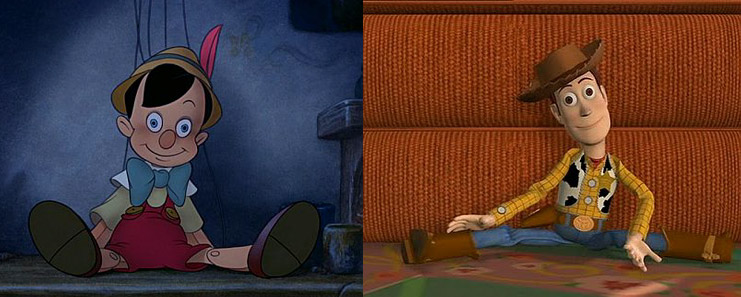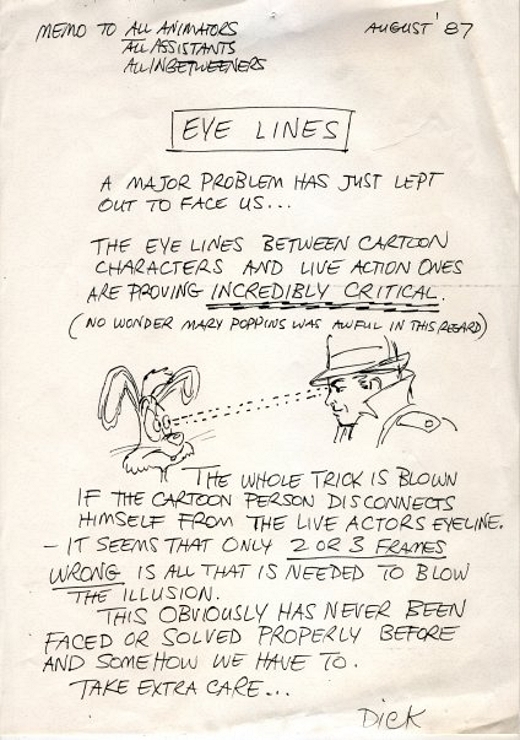October 7, 2010 permalink
Woody Pinocchio

From Bat, Bean, Beam’s essay The Unmaking of Pinocchio on the difficulties Disney and Pixar both faced, decades apart, in creating lovable puppets, contrasted with the original source material from Carlo Collodi’s dark fairly tale of self agency and society:
When John Lasseter and his colleagues at Pixar set about making their first animated feature, they struck the exact same trouble that had beleaguered old Walt: two years into production, whilst presenting an early draft to Disney’s producers, they came to the realisation that their central character, Woody the Sheriff, was a sarcastic and unlovable brat. ‘A thundering arsehole’ were co-screenwriter Joss Whedon’s actual words. And so again the work of animation was halted, the production team regrouped and a major rewrite ensued, to ensure that Woody would be warmed to and therefore that the film could succeed. And in this case too I have little doubt that it was the smart thing to do; besides, there was no fidelity to be compromised in the process, no book to betray, unless one were somehow inclined to regard Pinocchio as an implicit ur-source, the ghost of puppets past haunting Woody from beyond the grave.
